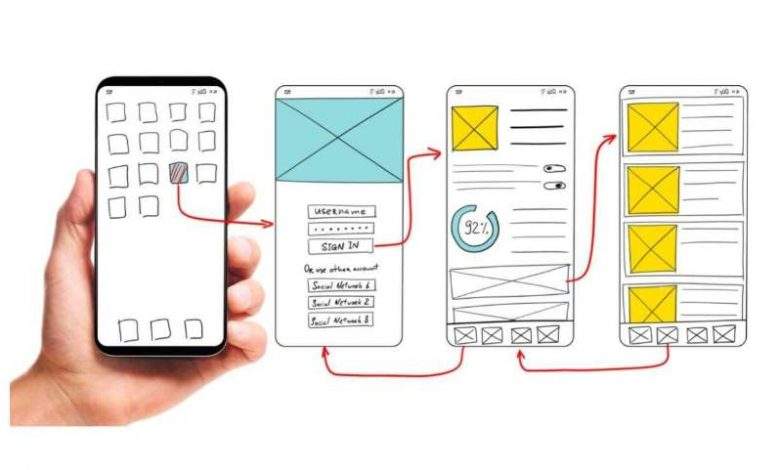
12 Mistakes in the Mobile App Development Process
Mistakes are an inevitable part of any process, and the mobile app development process is no exception. However, making mistakes during the development process can hurt the end product, resulting in frustration for users and lost revenue for developers. Here, we will take a look at some of the most common mistakes made during the mobile app development process, and how to avoid them.
Common Mistakes Made In The Mobile App Development Process
Most developers and app entrepreneurs tend to make one or more of the following mistakes when making a mobile app idea come to life.
1. Not Having a Solid Plan
By far the most common mistake made during the mobile app development process is not planning enough before beginning work on an app. While a certain amount of improvisation may be involved in the ideas you have for the app, a solid development plan is essential for ensuring that you meet your deadline and keep on track.
2. Poor User Experience
The success of an app largely depends on the user experience it delivers to people who use it. If users have a bad time using your app, then they’re unlikely to come back again, which means that they won’t download your app again either. It’s essential to make sure that your app is easy-to-use and enjoyable right from the start so that users are motivated to keep on using it.
3. Confusion With Pricing
The price of an app makes a big difference in terms of how well it performs, especially when it comes to free apps. If the price is too high, users may not be willing to pay for it, but if it’s too low then people may not take the app seriously. The best way to find the right price point is to do some market research and see what other apps in your category are charging.
4. Bugs and Glitches
The development process is a complex one, and along the way, there’s a lot of room for errors to creep in. A bug can be anything from a misplaced line of code to faulty hardware that causes problems, but all bugs have the potential to derail the mobile development process and turn into delays that affect when your app gets released. The best thing you can do is to carefully review every step of your app before release so that any potential issues are identified early on in the process.
5. Poor UI/UX
Most people don’t read manuals or documentation before using an app, so you must make sure your app is easy-to-use from day one. By paying close attention to detail when designing your mobile app, you can make sure that it’s intuitive and easy to use for your users, which is key to ensuring your app’s success.
6. Failing to Consider the End Game
Once the mobile app development process has reached its final stage, it’s essential to start thinking about how you’ll market and sell your new app. This includes making decisions around whether to use in-house staff or outside contractors for marketing purposes, as well as whether or not you’ll release a free version of your app along with premium versions that come with added features.
7. Lack of Testing
Testing is an essential part of the mobile app development process, and it’s important to test your app on as many different devices as possible. This will help you to identify any potential problems with how your app works on different platforms and give you a chance to fix them before your app goes live.
8. Releasing Too Early
It can be tempting to release your new app as soon as it’s ready, but it’s usually better to wait until all the kinks have been worked out. By releasing too early, you’re likely to get negative feedback from users who are unhappy with the quality of your app – not to mention the fact that it reflects poorly on your business if you release an unfinished product.
9. Complex Development Process
The more complex the mobile app development process is, the more likely it is that something will go wrong. This can be due to a variety of factors, such as too many people working on the project at once or trying to incorporate too many features into the app. The best way to avoid this is by simplifying the development process as much as possible, and ensuring that everyone working on the project understands what their role is and what needs to be done.
10. Not Updating Your App Regularly
One of the best ways to keep users engaged with your app is by releasing regular updates that add new features or fix any existing problems. By keeping your app up-to-date, you’re showing your users that you’re committed to providing a high-quality experience and that you’re willing to invest time and resources into making your app the best it can be.
11. Ignoring Customer Feedback
Customer feedback is one of the best ways to improve your app, but it’s important to make sure you’re listening to what your users have to say. By ignoring customer feedback, you’re missing out on valuable insights that can help you make your app better – not to mention the fact that it makes your users feel like their opinions don’t matter.
12. Not Having a Plan B
No matter how well you plan and how careful you are, there’s always a chance something will go wrong during the mobile app development process. This is why it’s important to have a backup plan in place so that you can still release a finished product even if things go awry. This could involve having a contingency plan in place for your app’s design, as well as developing extra features that can go live if you run into any issues.
Conclusion
Making sure your mobile app is successful requires a lot of hard work and attention to detail, but by following these 12 tips you’ll be well on your way to creating a winning product. Before starting on your mobile app development journey, you need to have a good understanding of the business model that you’re proposing. You need to be clear about how you’ll monetize the app, who will use it, and how you’ll get them to use it. After all, the worst thing that can happen is building an app with all the bells and whistles and forgetting to ask the question “why would someone download it?”
Along with this, you need to be clear on how much it will cost to develop your mobile app. Along with this, you need to be clear on how much it will cost to develop your mobile app. To save your budget you may opt in with cross-platform app development and hire React Native developers, for instance: https://doit.software/services/staff-augmentation/react-native-developers. You do not want to go over your budget, but at the same time, you want to make sure that the final result is not an underwhelming application that is practically useless.



